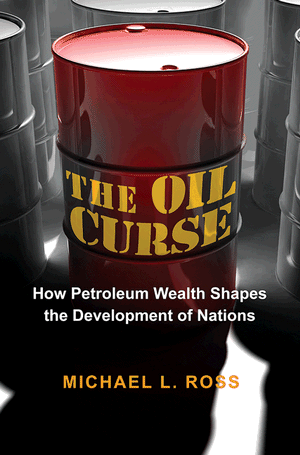Oct
10
2012
Reviewed by Marina Alberti, University of Washington
Natural Capital uses a series of assessment models to translate the science of ecosystem services into practice.

Natural Capital: Theory and Practice of Mapping Ecosystem Services, edited by Peter Kareiva, Heather Tallis, Taylor H. Ricketts, Gretchen C. Daily, and Stephen Polasky Oxford University Press, 392pp.
The concept of ecosystem services has provided a useful framework to explicitly link nature conservation to human wellbeing. Although the inextricable links between natural processes and human society trace all the way back to Greek philosophers such as Plato, the explicit recognition of nature’s benefit to humanity is relatively recent. Daily’s Nature’s Services (1997) is perhaps the first attempt to systematically assess ecosystem values and advance the notion that valuing ecosystem services may provide an effective approach for conservation. During the last decades, we have learned a great deal about the role of ecosystem functioning to provide critical services such as clean water, carbon sequestration, and crop pollination. The Millennium Ecosystem Assessment (2005) has provided a powerful framework to assess global ecosystem services and a first synthesis of potential threats. However, we know much less about how to integrate the emerging science into everyday decisions.
Natural Capital takes on this challenge with an essential first step. A diverse team of scientists has put together a compelling synthesis of explicit links between ecosystem services and human benefits and has developed a series of assessment models to translate the science of ecosystem services into practice.
As the authors indicate, it is only a beginning. Next steps will imply refining methods and accounting for complex feedback loops, dynamic effects and uncertainty. Yet to fulfil the objective of translating the knowledge to practice, the authors recognize the need for the natural and social science to address some difficult questions about quantification, predictability and cultural values. I would highlight that among them, the greatest challenge is understanding the complexity of decision processes, the diversity of decision makers and dynamic of institutional change. Primarily grounded in ecology and economics, the science of ecosystem services will need to expand the disciplinary boundaries. Natural Capital poses important challenges and creates new opportunities for building bridges with a diversity of social sciences and humanities.
no comments | tags: Marina Alberti | posted in Biodiversity, Ecosystem Services and Conservation, Environmental Economics
Oct
9
2012
Reviewed by Saleem Ali, University of Queensland
Michael L. Ross looks at how developing nations are shaped by their mineral wealth.

The Oil Curse: How Petroleum Wealth Shapes the Development of Nations, by Michael Ross, Princeton University Press, 296pp
The distortions in economic development that natural resource wealth can cause have been well-studied for many years by social scientists. UCLA political scientist Michael Ross’s new book, The Oil Curse is premised on his view that hydrocarbon wealth has four key attributes that lead to its potential for being “cursed”: scale, source, stability, and secrecy. Hydrocarbon projects have massive capital investment (scale), are not funded by citizen taxation or innovation incentives and are hence less connected to democratic parameters (source), are beholden to volatile commodity markets (stability) and have easily concealed revenues from oil, due to the contract norms between companies and governments (secrecy).
Ross further contends that the curse started to gain traction when state-run oil companies became more common. Such companies have much less accountability than privately held firms, and Ross considers their structure a major cause for perpetuating the “oil curse.” Therefore, although corporate executives may find Ross’s negative revelations about the essential lubricant of modern capitalism to be troubling, they can gain some solace that he strongly blames this outcome on government control of industry.
However, Ross remains nuanced about assigning culpability by also noting that private-sector management still needs some government oversight to be constructive. Ross’s key prescription to grapple with the oil curse is developing mutual accountability between the private and public sectors. Though he tends to make some broad causal statements and relies far too much on regression for his insights, Ross’s work is an important contribution to the literature on the consequential role of oil in development planning.
no comments | tags: Saleem Ali | posted in Energy policy, Environmental Economics, Land Use Planning
Oct
9
2012
Reviewed by William Moomaw, Tufts University
A forceful argument against America’s vicious circle of growing inequality by the Nobel Prize–winning economist.

The Price of Inequality: How Today’s Divided Society Endangers Our Future, by Joseph Stiglitz, W.W. Norton Company , 448pp
Joseph Stiglitz’s The Price of Inequality offers a remarkably insightful analysis of the economy that has major implications for sustainable development. One of the fundamental premises of sustainable development is equity, but Stiglitz demonstrates that the growing inequality of incomes in the United States is extracting a high cost not just from the economy, but also from the environment and society.
Using solid data, he lays bare the means by which the dramatic shift in income disparity has occurred. Wealth increases at the top have resulted from rent-seeking in the financial and other industries, changes in tax policy that favor the already wealthy and reductions in the negotiating capacity of labor. Stiglitz documents the financial instruments that lead to the transfer of wealth and ultimately caused the recent collapse of the global economy.
Of comparable importance are recently enacted governmental policies that externalize more of the environmental costs of doing business onto the public, and the destructive incentives that have flowed to resource-based industries. Subsidies include direct payments, but also enhanced profit from the very low prices paid to the government by extractive industries for leases on federal lands. This shift in governmental policies has been fuelled by the ability of top income earners to pay the “re-election costs” of politicians who will favor their economic interests. As Stiglitz notes, these anti-society and anti-environmental policies actually reduce the viability of the economy rather than enhance it. Not a strategy for a sustainable future.
no comments | tags: William Moomaw | posted in Environmental Economics, Sustainable Development



